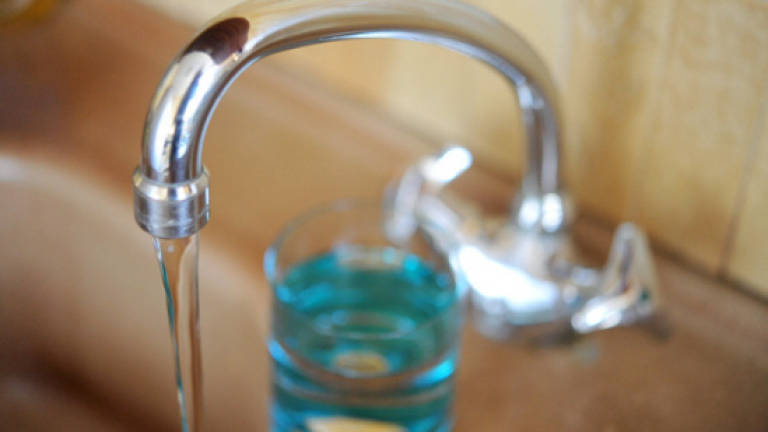Conserve water, don't wait for water rationing

KUALA LUMPUR: It is better to be proactive and start conserving water right now before water rationing becomes inevitable. In fact, using water prudently at home should be second nature to Malaysians.
The current prolonged dry spell due to the El Nino phenomenon has drastically reduced the water levels at reservoirs and a water crisis cannot be averted if the hot spell continues much longer.
S.Piarapakaran, the President of Association of Water & Energy Research Malaysia (Awer) believes that from now onwards Malaysians should also consider utilising waste water where it is possible.
The waste water that he is speaking of is the treated water that is used for washing. The water is not meant for human consumption and should only be used for washing, flushing and watering plants.
For example the water used to wash vegetables can be used to water plants and the water used to wash clothing, including from the washing machine, can be used to wash the floor outdoors or flush the drains.
Can water be recycled
In fact this waste water can be recycled right at home, as long as one has the right equipment.
According to Piarapakaran, the technology to recycle water at homes is already there but it is costly to own and maintain when compared with the water tariff.
However, for him, recycling water is more cost effective for the industries than at homes and probably it is only worth considering in the future.
The benefits of using waste water
Piarapakaran points out at present, the waste water that ends up in the sewerage line is billed based on the volume of the treated water used.
Therefore if this waste water is reused, definitely consumers could save both on the water bill from the water utility company and the sewerage services provider.
"For example, if a premises uses 40 cubic metres of water and the owner reuses 10 cubic metres of the water monthly, the premises will only pay for 30 cubic metres of water to the sewerage services provider.
"However, if the owner does not use waste water, both bills will take into account 40 cubic metres of water," he explained further.
Separate piping system
The piping systems at home at present are not meant to collect waste water because they are only meant for treated water. Therefore, in collecting waste water a different piping system is needed.
For most premises waste water will flow into the sewage line. Collection of rain water too needs separate piping. Nonetheless, the treated water and the waste water piping have to remain separate.
Problems may arise in the management of waste water collection as the systems have to be maintained regularly.
Secondly, not everyone is willing to install systems that require regular maintenance.
For water recycling (water other than sewage water), the "greywater treatment system" is used where water used for bathing, wash clothing, vegetables and plates and utensils is recycled.
The treatment system connecting the washing machine could cost up to RM6,000.00 and if added with a water pump it could cost up to RM9,000.00
More advanced systems could cost up to RM60,000.
According to Piarapakaran, the costing mentioned are based on the prices in 2014.
As piping will be an issue, Awer feels such system is not necessary.
"Right from the early days, water used to wash clothing and vegetables will be reused other than for human consumption without costly technology.
"Looking at the current challenging economic conditions, we have to consider more simple methods in the efforts to conserve water," he said.
It all depends on the government
According to Piarapakaran, housing developers could not do much without the government's decision.
Awer has already proposed to the government to setup centralised sewerage treatment plants.
These plants have to be built nearby industrial zones.
The treated waste water can be used by non food and beverage industries. By this way the water saved in the industrial sector can be channelled to domestic users.
"This plan is already in the 11th Malaysia Plan and Awer will ensure proper procedures are followed and the cost is kept under control.
"The centralised plants like this could also be used to generate electricity, and produce fertilisers. These plants could help in reducing operations cost and help maintain the treated water and waste water tariffs at reasonable levels," he said. — Bernama